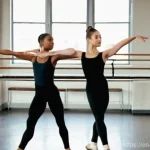Crafting a standout audition resume is essential for any aspiring musical theatre performer. It’s your chance to showcase your skills, experience, and unique personality to casting directors and creative teams.
Think of it as your professional highlight reel, the first impression you make before you even sing a note. Let’s break down how to create a resume that gets you noticed.
Showcasing Your Vocal Range and Performance Skills

Your vocal range is a critical piece of information for musical theatre auditions. Accurately listing your range allows the casting team to quickly assess if your voice suits the demands of the role.
Are you a soaring soprano or a booming baritone? Don’t guess; know your voice!
Finding Your Vocal Range
* Work with a Vocal Coach: The best way to determine your vocal range is by working with a professional vocal coach. They can guide you through exercises to accurately identify your highest and lowest comfortable notes.
* Use a Piano or Keyboard: If you can’t access a vocal coach, use a piano or keyboard. Start by singing a comfortable note and then gradually move up and down the scale, identifying the highest and lowest notes you can sing without strain.
* Understand Standard Terminology: Familiarize yourself with standard vocal range terminology (e.g., Soprano: C4-A5, Tenor: C3-A4). This will help you communicate your range effectively.
Listing Performance Skills
Beyond singing, highlight any other skills that make you a versatile performer. This is your chance to shine and show your range of abilities. * Dance Styles: List the dance styles you’re proficient in, such as ballet, jazz, tap, hip-hop, or contemporary.
Be specific about your level of training in each style. * Instrumental Skills: If you play any musical instruments, be sure to include them. Can you play the piano, guitar, or drums?
These skills can set you apart. * Special Skills: Include any unique abilities that could be relevant to a production, such as stage combat, juggling, acrobatics, or fluency in multiple languages.
* Accents and Dialects: If you can perform in different accents or dialects, list them. This can be particularly valuable for productions set in specific locations or time periods.
Detailing Your Training and Education
The training and education section of your resume provides casting directors with insight into your background and level of preparation. It’s crucial to be detailed and honest, highlighting the institutions and instructors who have shaped your skills.
Formatting Your Education Section
* Degree Information: If you have a degree in musical theatre, drama, or a related field, list the degree name, the institution, and the year you graduated (or the expected graduation year).
* Workshops and Masterclasses: Include any significant workshops or masterclasses you’ve attended, especially those led by notable industry professionals.
* Private Coaching: List any ongoing or significant private coaching you’ve received in singing, acting, or dance. * High School Training: If you’re early in your career, include relevant high school training, such as drama club productions or music ensembles.
Highlighting Key Instructors and Institutions
* Influential Instructors: If you’ve studied with instructors who are well-known or respected in the industry, mention their names. This can add credibility to your training.
* Reputable Institutions: Highlight any training you’ve received from reputable institutions, such as prestigious performing arts schools or universities.
* Specific Programs: If you participated in specific programs or intensives, describe them briefly and mention what you gained from the experience.
Crafting a Compelling Special Skills Section
The special skills section of your resume is your chance to showcase the unique talents that set you apart from other performers. Think beyond the typical skills and highlight anything that could make you a versatile and valuable addition to a production.
Brainstorming Unique Skills
* Physical Skills: Include any physical skills that could be relevant, such as acrobatics, stage combat, juggling, or horseback riding. * Linguistic Skills: List any languages you speak fluently, as well as any accents or dialects you can perform.
* Musical Skills: Highlight any instruments you play, as well as your proficiency in music theory or composition. * Technical Skills: If you have experience with stagecraft, lighting, sound, or costume design, include those skills as well.
* Other Talents: Don’t be afraid to include unusual or quirky talents that could be interesting or useful in a production, such as mime, magic tricks, or puppetry.
Structuring the Section for Maximum Impact
* Prioritize Relevance: Place the most relevant and impressive skills at the top of the section. * Be Specific: Instead of just listing “dance,” specify the styles you’re proficient in (e.g., ballet, jazz, tap).
* Quantify Your Skills: If possible, quantify your skills with specific details, such as “fluent in Spanish” or “certified in stage combat.”
Tailoring Your Resume to Specific Roles
One of the most effective ways to make your resume stand out is to tailor it to the specific roles you’re auditioning for. This shows casting directors that you’ve taken the time to understand the production and that you have the skills and experience to excel in the role.
Identifying Relevant Skills and Experience
* Analyze the Role: Carefully review the character description and the requirements of the role. * Highlight Matching Skills: Identify the skills and experience listed on your resume that align with the role’s requirements.
* Adjust Your Skills Section: If necessary, adjust your special skills section to emphasize the skills that are most relevant to the role. * Select Relevant Credits: Choose production credits that showcase your ability to perform in a similar style or genre.
Customizing Your Resume for Each Audition
* Create Multiple Versions: Create multiple versions of your resume, each tailored to a specific type of role or production. * Update Regularly: Regularly update your resume to reflect your latest training, experience, and skills.
* Proofread Carefully: Always proofread your resume carefully before submitting it to ensure there are no errors or inconsistencies.
| Section | Content | Tips |
|---|---|---|
| Personal Information | Name, Contact Information, Headshot | Use a professional headshot and ensure contact info is accurate. |
| Vocal Range | Specific Vocal Range (e.g., Soprano: C4-A5) | Work with a vocal coach to accurately determine your range. |
| Performance Skills | Dance Styles, Instrumental Skills, Special Skills, Accents/Dialects | Be specific and list your level of proficiency in each skill. |
| Training and Education | Degrees, Workshops, Masterclasses, Private Coaching | Highlight key instructors and reputable institutions. |
| Performance Experience | Show Titles, Roles, Theaters, Directors | List your most relevant and impressive roles first. |
| Special Skills | Unique talents that set you apart | Include physical, linguistic, musical, and technical skills. |
The Importance of a Professional Headshot
Your headshot is often the first thing casting directors see, so it’s crucial to invest in a high-quality, professional headshot that accurately represents you.
A great headshot can open doors and make a lasting impression.
Choosing the Right Photographer
* Experience: Look for a photographer with experience in shooting headshots for actors and performers. * Portfolio: Review the photographer’s portfolio to see if their style aligns with your personal brand and the types of roles you’re seeking.
* Recommendations: Ask for recommendations from other performers or acting coaches.
What to Wear and How to Pose
* Clothing: Choose clothing that is simple, flattering, and reflects your personality. Avoid busy patterns or distracting accessories. * Hair and Makeup: Keep your hair and makeup natural and understated.
You want to look like yourself on your best day. * Expression: Work with the photographer to capture a range of expressions that showcase your versatility and personality.
* Pose: Experiment with different poses to find angles that are flattering and natural.
Updating Your Headshot Regularly
* Keep It Current: Update your headshot every few years, or whenever you undergo a significant change in appearance (e.g., new hairstyle, weight change).
* Reflect Your Brand: Ensure your headshot continues to accurately reflect your personal brand and the types of roles you’re seeking.
Ensuring Your Resume is Error-Free
Typos, grammatical errors, and inconsistencies can detract from your credibility and make you appear unprofessional. Take the time to thoroughly proofread your resume and ensure it is error-free.
Tips for Proofreading
* Read Slowly: Read your resume slowly and carefully, paying attention to every word and detail. * Use a Spell Checker: Use a spell checker to catch any typos or spelling errors.
* Ask for Help: Ask a friend, colleague, or mentor to review your resume for errors or inconsistencies. * Print It Out: Print out your resume and review it in hard copy.
Sometimes errors are easier to spot on paper.
Maintaining Consistency
* Formatting: Ensure your resume is consistently formatted throughout, with consistent font sizes, spacing, and margins. * Dates: Double-check the dates listed on your resume to ensure they are accurate and consistent.
* Names: Verify that the names of theaters, directors, and instructors are spelled correctly. Crafting a standout musical theatre audition resume requires careful attention to detail, a focus on showcasing your strengths, and a commitment to professionalism.
By following these guidelines, you can create a resume that impresses casting directors and helps you land your dream roles. Remember, your resume is your professional introduction, so make it count!
📚 References
Wikipedia Encyclopedia






